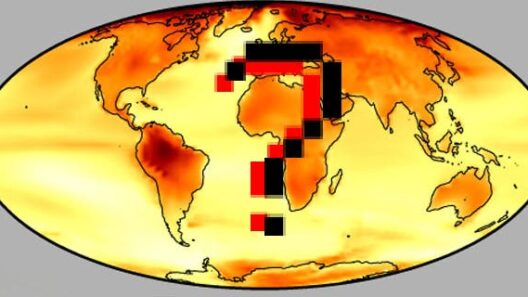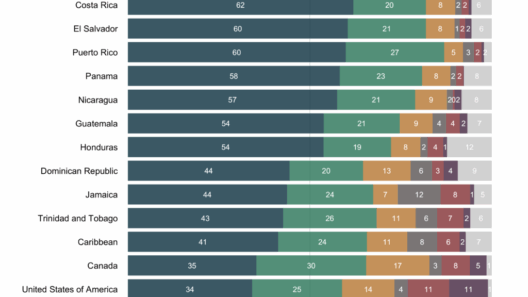In a world increasingly dominated by technology, a pressing question arises: does the internet have a carbon footprint? As billions of users engage with online platforms, the question becomes more complex. Could your next scroll transform into a heavier burden for the planet? This inquiry propels a critical discourse about digital consumption and its inadvertent contribution to climate degradation.
To comprehend the internet’s carbon footprint, it’s essential to first grasp its intricacies. The internet is not merely a conduit for data but an expansive infrastructure consisting of data centers, servers, networking equipment, and transmission facilities. Each component functions incessantly, consuming substantial energy, predominantly derived from fossil fuel sources. This energy consumption is where the internet’s ecological impact begins to crystallize.
Estimations surrounding the carbon emissions attributable to the internet are staggering. Studies indicate that the global internet could account for about 2-4% of total greenhouse gas emissions. This figure is roughly equivalent to the aviation industry’s impact on carbon footprints. Yet, unlike airplanes, the internet is often perceived as an ethereal entity, leading many to disregard its environmental implications.
To further dissect this phenomenon, consider the stark reality of data centers. These facilities, tasked with processing and storing vast volumes of information, operate continuously. The cooling systems, designed to maintain optimal operational temperatures, largely contribute to their energy expenditure. Consequently, energy use in data centers can equate to the consumption of small countries. If we’re to examine this through an ecological lens, it compels one to ask: what price are we willing to pay for digital convenience?
Moreover, streaming services exacerbate this dilemma. The rising popularity of streaming platforms, such as Netflix and YouTube, leads to increased data flow that exacerbates energy consumption. High-definition video streaming, in particular, demands tremendous bandwidth, necessitating substantial energy resources for both transmission and storage. Interestingly, a single hour of streaming in high-definition can embody as much carbon as driving several miles in a typical gasoline vehicle. An amusing reflection arises here: Is a binge-watch session more guilty than a leisurely drive?
Additionally, the proliferation of smart devices compounds the dilemma. The Internet of Things (IoT), which connects everyday objects to the internet, further intensifies energy demands. From smart refrigerators to home assistants, each device functions as a node in the digital network, contributing to an upsurge in overall energy consumption. The collective energy demand of these interconnected devices is profound, yet often unnoticed. What would happen if we collectively unplugged for a day? Would the planet breathe a little easier?
Addressing the internet’s carbon footprint goes beyond recognizing the underlying energy demands. It necessitates informed action. Individuals and organizations must grapple with their digital habits, pondering whether instantaneous access to information is worth the ecological sacrifice. This challenge extends to corporations, particularly those in the tech sector, that hold the responsibility of minimizing their environmental impact. Transparent sustainability practices could serve as a litmus test for corporate accountability.
Amidst these challenges lies a glimmer of hope in digital sustainability initiatives. Some companies are championing renewable energy utilization in their data centers. For instance, tech giants are increasingly committing to power their data centers with renewable sources, such as wind and solar energy. This transition not only mitigates emissions but also sets a precedent for industry-wide change. Yet, the journey to a greener internet is far from over. A concerted effort, spanning individuals, governments, and corporations, is paramount in facilitating this shift.
Interestingly, one might consider the role of digital literacy in fostering environmental awareness. Understanding the implications of online behaviors and their environmental consequences empowers users to make conscientious choices. For instance, opting for lower resolution when streaming videos, unsubscribing from unnecessary email lists, and optimizing cloud storage can collectively mitigate digital carbon footprints. Squaring off the digital realm with responsible consumption mirrors environmental stewardship in all its manifestations.
Ultimately, addressing the internet’s carbon footprint poses complex challenges laden with both responsibility and opportunity. Advocating for digital conservation can lead to significant environmental benefits, reducing how our online activities affect global warming. As we delve deeper into this digital age, re-evaluating our habits and embracing sustainable practices will be crucial. Is it feasible to envision a future where our online experiences coexist harmoniously with environmental integrity?
The issue of the internet’s carbon footprint may not present immediate or straightforward solutions, but it beckons a critical reassessment of our digital interactions. The challenge lies not only in the statistics but in altering our collective consciousness regarding the environment. This evolving narrative about connectivity, consumption, and responsibility provides fertile ground for exploring innovative pathways toward a sustainable digital future.
In conclusion, while the internet may appear to operate in a virtual domain untouched by the physical world, its implications on climate change are tangible and profound. The intricate web of data consumption, energy utilization, and emissions challenges us to confront our digital habits. Instead of relegating this inquiry into the realm of abstract concerns, it is vital to cultivate a sense of agency within the digital landscape. After all, each click, upload, and download contributes to a global narrative on sustainability, inviting us all to be stewards of both the technology we embrace and the planet we inhabit.








